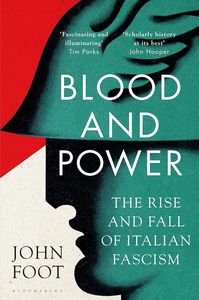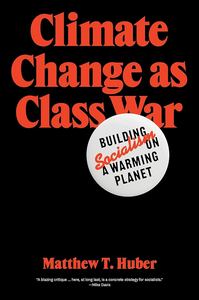Book Reviews – Foot, Whitehead, Huber
 Blood and Power. The Rise and Fall of Italian Fascism. By John Foot. Bloomsbury, 2023. 416pp.
Blood and Power. The Rise and Fall of Italian Fascism. By John Foot. Bloomsbury, 2023. 416pp.
It has become common for the cry of ‘fascism’ to go up, from both right and left, every time a government or political party enacts or proposes policies which seem destined to increase state control over the system we live under. Some even argue that western capitalism itself is in fact fascism, if a cleverly dissimulated form. One thing historian John Foot’s new book on Italian fascism does is to give the lie to all this. It shows, in the starkest possible terms, how different fascism, in its original incarnation anyway, really was from what many idly give that label to today.
Blood and Power takes the reader on a harrowing journey of violence, torture and murder, without which fascism could never have taken hold of Italy and then ruled the country for over 20 years, only finally collapsing when its leader, Mussolini, made the fatal mistake of allying himself with Nazi Germany and being brought down when Hitler was brought down. Otherwise, the author speculates, the regime may have lasted longer, as did the similar set-up in Spain under Franco. But this book is not just a conventional, linear account (of which there are many) of Italy’s ‘ventennio nero’ (‘black 20 years’), but rather an excavation of that period ‘from below’, seen in large part, that is, via the on-the-ground experiences of many ‘ordinary’ individuals who lived, and not infrequently died, under fascist terror.
And terror it truly was, some of it stomach-churning as we see it depicted on the page. From as early as 1919, those who opposed the politics of fascism, either through declaring themselves ‘socialists’ or ‘communists’ or just voicing opposition to its ‘lawless’ approach, were subjected to brutal and terrifying treatment at the hands of increasingly large and merciless bands of fascist thugs. They were intimidated, beaten, tortured, maimed and often murdered, while the ‘democratic’ state and its authorities (ie, police and military) looked the other way, allowing a sort of ‘state within a state’ to develop. As the author writes, ‘fascism eliminated its opponents with gusto or reduced them to a state of fear’ (…) ‘it was fundamental, visceral, epochal and life-changing: both for those who experienced it, and those who practised it’.
Nor was there any redress for victims, and once the fascist party had taken full power from 1925 onwards, after which elections and any semblance of democracy ceased, it became all the more implacable. So, for example, as the author tells us, ‘it became nigh on impossible to print or distribute any kind of newspaper that wasn’t in full support of Mussolini and fascist rule (…) prisoners were often ‘disappeared’ or ‘committed suicide’ in prison (…) ‘torture was common, ritualised and sanctioned from above.’ The regime relentlessly pursued all its opponents, having no compunction about even sending its spies and agents abroad in pursuit of those who had fled the country and wreaking vengeance on them there. In all, according to the author, Italian fascism was ‘responsible for the ‘premature deaths” of at least a million people, in Italy and across the world’, including of course many thousands of Jews who were transported from Italy to the gas chambers in the latter part of the war.
How does all this compare to what is often referred to as fascism, or at least potential fascism, nowadays, in particular the ‘populist’ politics and regimes that have risen up in recent times? How, for example, does it compare to the current right-wing government in Italy, often labelled ‘neo-fascist’? How does it compare to the politics of Donald Trump in the US and the foreboding about what might be to come if he wins the 2024 presidential election? How does it compare to attempts by the Conservative Party in this country to undermine trade unions or criminalise certain forms of expression or to the apparently racist and ultra-nationalistic policies of right-wing groupings such as the Reform Party? The knowledge that this book imparts of the reality of Mussolini’s one-party state makes it clear that, however retrograde and undesirable it may be, the kind of modern-day populism exemplified above does not bear comparison to the vicious, ultra-repressive, anti-democratic nature of fascism in its original Italian form.
What, however, Italian fascism does share with today’s ‘populist’ ideologies or governments and indeed with the more ‘enlightened’ administrations in most Western countries is that the purpose of them all is to manage the profit system (ie, capitalism). And, broadly speaking, this takes place most effectively, as far as capitalism is concerned, in a political environment where there are democratic elections and scope for relatively free circulation and exchange of ideas. Regimes that do not allow this (eg, China and Russia today), while by no means impregnable in the longer term, inhibit such development and, in the way they operate, are the closest things that exist today to the kind of system excavated and characterised so expertly by John Foot in his exploration of Italian fascism. It should be added that such regimes also inhibit the spread of consciousness necessary for the establishment of the alternative system of society beyond the system of wages, money and profit which this journal calls socialism.
 A Devilish Kind of Courage. By Andrew Whitehead. Reaktion Books. 320 pages.
A Devilish Kind of Courage. By Andrew Whitehead. Reaktion Books. 320 pages.
Andrew Whitehead recounts here the events and background to the ‘Siege of Sidney Street’ in the East End of London in January 1911 in which two Latvian revolutionaries, wanted for the killing of three policeman in a botched attempt to rob a jewellery shop the previous month, were cornered. After a shoot-out the two were burned to death when the house they were holed up in caught (or was set on) fire and no attempt to extinguish it made. The supposed ringleader, dubbed ‘Peter the Painter’ by the police, became a legend but was never found.
It was a sensation at the time and led to an (unsuccessful) campaign to stop the immigration of ‘aliens’ from Tsarist Russia. This was often openly anti-semitic, even though those involved were Latvians. The Russian revolution of 1905, after an initial success in extracting concessions from the Tsarist regime, was brutally suppressed. Some of the revolutionaries turned to bank robberies to obtain money to finance revolutionary organisation and activity (and survive). Exiled to Western Europe some continued this, including those involved in the attempt to rob a jewellery shop in December 1910 and a wages robbery in Tottenham in January 1909. They were described as ‘anarchists’ and were certainly acquainted with anarchist ideas. The three most well-known anarchists living in Britain at the time — Kropotkin, Malatesta and Rocker — repudiated their tactics. However, ‘propaganda of the deed’ was advocated and practised, in the form of assassinations and robberies, by other anarchists at the time.
Whitehead examines the milieu in which exiles and immigrants from Tsarist Russia in the East End of London moved, mainly Yiddish-speaking Jews but also others including Latvians from the Baltic region. He also identifies who Peter the Painter most likely was. His well-researched and detailed book looks like being the definitive study of what the Socialist Standard of the time described as ‘the recent world-stirring East End melodrama’ (as well giving a socialist analysis of it and its repercussions) (tinyurl.com/2k6fk4x5 ).
 Climate Change as Class War. Building Socialism on a Warming Planet. By Matthew T. Huber. Verso, 2023. 312pp.
Climate Change as Class War. Building Socialism on a Warming Planet. By Matthew T. Huber. Verso, 2023. 312pp.
American geographer Matthew Huber has produced a thought-provoking book on society and climate change. It examines in wide-ranging and immensely knowledgeable fashion how history (and in particular the history of capitalism) has got us where we are as a species and offers considered proposals for addressing the current planetary environmental crisis in a way the author sees as benefitting the majority of the population, ie, those who have to sell their energies to an employer for a wage or salary in order to live.
He makes it clear from the start that his concern is for this latter group, ie, the world’s workers. And his aim – his ultimate aim anyway – is a non-class-divided society. Then of course there is the perennial question of how to achieve that, and this – in part at least – is what this book is about. However, since in the author’s view post-capitalism in terms of a classless society is not on the immediate horizon, he sees immediate action of some kind as essential, otherwise the climate crisis will engulf humanity and nothing will be left to save.
The action he advocates (focusing almost exclusively on the US situation – something he recognises) is the strongest possible pressure on government to adopt and implement ’Green New Deal’ policies (described as ‘a working-class environmental program’). Such policies would involve the government taking over the energy sector completely and instituting drastic policies of decarbonisation to achieve a ‘just transition to a clean energy economy’. One of the keys to this he sees as the overwhelming adoption and use of electricity to replace fossil fuels for the purpose of producing and supplying energy and so, in his view, avert the dire climate consequences and environmental degradation we see at present. This is because, in the author’s words, ‘electricity is at the core of almost everything we do in an increasingly digital world (…) economic activity is impossible without electricity’. He sums up his vision by saying that ‘the politics of the Green New Deal seeks to conjoin working-class and ecological interests into one, under the umbrella of a politics of life’. How will this pressure be placed on government? The author sees it as happening via sustained trade union action by workers from ‘a broad and diverse working class’, but especially those in key industries with ‘strikes and disruption at the point of production’.
Is this possible or likely? Of course, the author is perfectly right in arguing that, when trade union action is sufficiently solid and well-focused, employers and governments have no choice but to listen and may make concessions. He gives certain examples from the experience of industrial action in the US to show that ‘strikes can build power and win’. But the question then arises, what would be the consequences if such a strategy were successful in the key sector of energy and the government moved to take over the sector?
To answer this, it is worth mentioning a book possibly dating from after when Climate Change as Class War was written. This is Bright Green Lies by Derrick Jensen, Lierre Keith and Max Wilbert (reviewed in the January 2023 issue of this journal), which explains how any Green New Deal agenda, even if implemented, would be no less harmful than the fossil fuel use it might seek to replace. This is because, with the money and market system still operating (even if under government supervision), the Earth would still be a target for commodification, and the process of production and setting up and maintenance of infrastructure even for ‘green’, ‘renewable’ sources of energy would continue to extract from the environment resources it could not afford to lose and in this process carry on causing climate change and destroying the Earth’s geological fabric.
So though, as already stated, Huber’s book is extraordinarily wide-ranging in the many areas and sources it draws on, would it be possible for governments, whose very function is to be, in the author’s own words, ‘committed to private capital and anarchic market competition’, to somehow change their nature and the role of managing and supporting the market system, to truly recognise ‘the inherent antagonisms between capital and the climate’ and to no longer act as an executive committee for their national owners of capital?
Then there is the author’s focus on trade unions. While unions are necessary institutions for workers to try and resist the encroachments of capital and get what they can in terms of pay and working conditions, they are by their nature defensive bodies, whose purpose is not, nor can be, ‘political’ as such. Trade unions may of course be places where political ideas circulate and where socialist consciousness may spread, but they cannot in themselves offer solutions to the fundamental inequalities inherent in the class-divided society, which the author rightly sees as fundamental to capitalism and its market system. Still less can unions be a tool for some kind of quick solution to the problems of ecological breakdown that threatens the whole planet.
So rather than look to the short-term ‘fix’ (which isn’t actually a fix at all) of action to try and force governments to take control over energy, a far more practical purpose would be served if all those who, like Matthew Huber, have striking and often subtle insights into how the world is organised, recognise the class-based nature of society and understand its highly detrimental effects both for human life and the biosphere as a whole, campaigned as part of a democratic political movement putting forward the case for majority action of the world’s people to collectively organise for a leaderless, stateless, marketless society – one that will emancipate the human species, protect the environment and look after the Earth’s ecology as a whole. That will be the real ‘just transition’.
HKM
3 Replies to “Book Reviews – Foot, Whitehead, Huber”
Leave a Reply
You must be logged in to post a comment.

HKM’s review above of ‘Blood and Power’ insists on there being no relationship with the fascism of that time and what some call fascistic tendencies in contemporary politics. Presumably in Italy at that time there was a gradual erosion of ‘liberal’ values that enabled fascism to become dominant? Was it not supported by some influential capitalists? The failure of capitalism to provide decent lives for the workers is always prone to right and left wing extremist ideological versions and that threat still exists. I think it is very unwise to dismiss ‘fascism’ as purely a phenomena restricted to the middle 20th century in Europe.
That “fascism” was a historically-limited phenomenon seems perfectly valid. Otherwise “fascist” just becomes another swear word to describe authoritarianism.
What’s ‘historically – limited phenomenon’ mean? Is socialism similarly characterized as a 19th century phenomena? Socialism is also used as a pejorative by its opponents. Does not Fascism describe a specific form of capitalism? There can be little doubt that many post second world war regimes in South America and Africa can confidently be called Fascist.